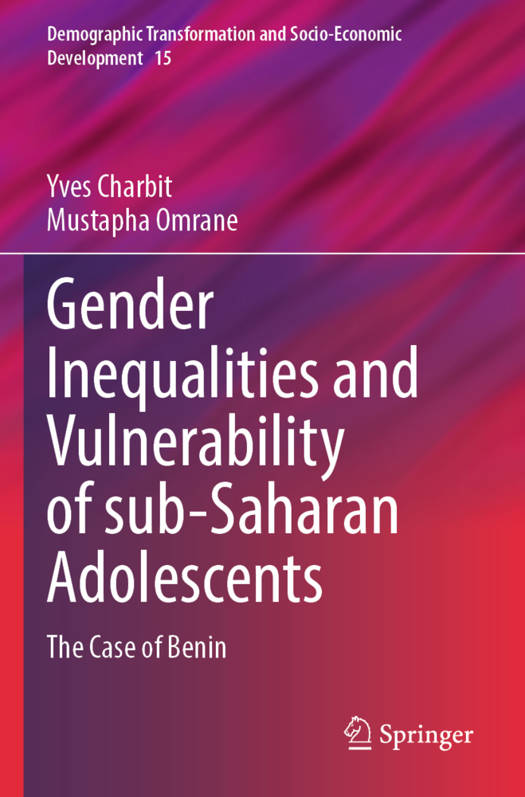
- Retrait gratuit dans votre magasin Club
- 7.000.000 titres dans notre catalogue
- Payer en toute sécurité
- Toujours un magasin près de chez vous
- Retrait gratuit dans votre magasin Club
- 7.000.0000 titres dans notre catalogue
- Payer en toute sécurité
- Toujours un magasin près de chez vous
Gender Inequalities and Vulnerability of Sub-Saharan Adolescents
The Case of Benin
Yves Charbit, Mustapha OmraneDescription
This book analyses the vulnerability of adolescent girls, which results from cumulative inequalities: gender, lack of education, residential, and poverty. It is based on original analyses of data from the national survey carried out by the National Institute of Statistics and Economic Analysis in collaboration with UNICEF.
The book discusses three main themes. First, the experience of adolescence: access to globalization, via access to TIC (Trusted Internet Connections) and mass media; subjective well-being; smoking and alcohol consumption; child discipline and domestic violence are discussed. Secondly, the book focusses on the beginning of fertile life: child marriage; early pregnancy; prenatal care; birth weight and breastfeeding. HIV/AIDS and sexuality.
The third theme touches on the potential contribution of adolescents to harvesting the demographic dividend: fertility and contraception; postnatal care and vaccination of children; pre-school learning; education andgender; household health vulnerability (water and sanitation). On the basis of the analyses of data, implications regarding concrete policy measures aimed at reducing the vulnerability of adolescents are identified at the end of each chapter.Through the richness of the analyses and the methodological rigor, this book provides an interesting read to both specialists and non-specialists interested in adolescence and the future of Benin, Africa and beyond.
The [basis of the] English translation of this book from its French original manuscript was done with the help of artificial intelligence. A subsequent human revision of the content was done by the author.
Spécifications
Parties prenantes
- Auteur(s) :
- Editeur:
Contenu
- Nombre de pages :
- 218
- Langue:
- Anglais
- Collection :
- Tome:
- n° 15
Caractéristiques
- EAN:
- 9783031380983
- Date de parution :
- 20-08-24
- Format:
- Livre broché
- Format numérique:
- Trade paperback (VS)
- Dimensions :
- 155 mm x 235 mm
- Poids :
- 365 g

Les avis
Nous publions uniquement les avis qui respectent les conditions requises. Consultez nos conditions pour les avis.






